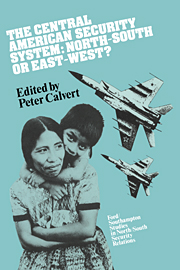Book contents
- Frontmatter
- Contents
- Notes on contributors
- Preface
- Map of the Caribbean Basin area
- Part I The problem at the interstate level
- Part II The problem at the state level
- Part III Solutions
- 9 The militarization of the Commonwealth Caribbean
- 10 Pacification, security and democracy: Contadora's role in Central America
- 11 Problems and policies: an agenda for the 1990s
- Index
11 - Problems and policies: an agenda for the 1990s
Published online by Cambridge University Press: 15 October 2009
- Frontmatter
- Contents
- Notes on contributors
- Preface
- Map of the Caribbean Basin area
- Part I The problem at the interstate level
- Part II The problem at the state level
- Part III Solutions
- 9 The militarization of the Commonwealth Caribbean
- 10 Pacification, security and democracy: Contadora's role in Central America
- 11 Problems and policies: an agenda for the 1990s
- Index
Summary
‘Where you stand depends on where you sit’ – and the view of where the challenges to security lie in Central America and the Caribbean varies as to whether they are viewed from Washington or Moscow, London or Kingston, Havana or Tegucigalpa. The purpose of this volume has been to develop a synthesis between these views, and, taking advantage of Europe's remoteness from the area, to try to establish a degree of detachment in handling them.
WHAT IS THE PROBLEM?
The main problem, as so often happens, is that there is no agreement on what is the problem. Washington sees its vital interests as threatened by Communist penetration of the area, masterminded from Moscow by way of Havana and Nicaragua. Havana has developed a siege mentality; in many years of resisting what it sees as American imperialism it has been prepared to forego much of its independence in order to secure the friendship of the only other superpower which exists at this time. Nicaragua is governed by men who also see the United States as an alien military power which has intervened in their country by force in the past and is doing so again now. The Contadora states all have interests in ensuring that armed conflict in Central America does not continue. They are not themselves afraid of US intervention, though they are strongly aware of its power and each sees itself as bidding for Washington's favour, whatever they may say to their electorates.
- Type
- Chapter
- Information
- The Central American Security SystemNorth-South or East-West?, pp. 177 - 203Publisher: Cambridge University PressPrint publication year: 1988

